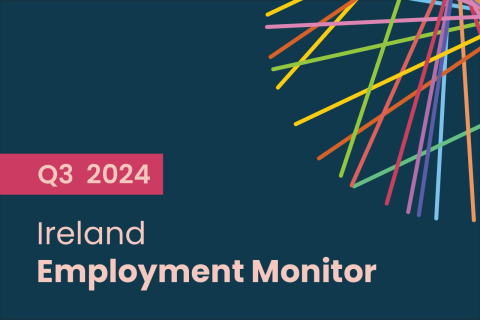The Networking Game: Unlocking Powerful Connections for Your Job Search

Imagine this: You spend months applying for jobs, your resume is polished to perfection, and yet interview invites remain elusive. Networking can be the key to unlocking a treasure trove of opportunities. Over 84% of the companies believe the most cost-effective way to fill roles is through referrals, highlighting the power of building genuine connections with professionals in your field.
Networking is about fostering relationships, gaining valuable insights, and discovering potential mentors who can guide you throughout your career. These connections can open doors to unadvertised positions, provide valuable insider information, and give you a crucial leg up over other applicants.
Employees are more likely to recommend individuals who would fit the company culture and have the skills they need. Companies appreciate this kind of insider knowledge, and many offer rewards and recognition programs for successful referrals.
The power of networking extends beyond employee referrals. In a global survey, a staggering 35% of LinkedIn users reported that a casual conversation initiated through LinkedIn messaging led to a new opportunity, such as business deals or even new jobs.
This article takes a fresh look at the game. We'll equip you with practical strategies to navigate the current job market and tackle common networking challenges head-on, from overcoming introversion to crafting a winning elevator pitch.
Here's the exciting part: the benefits of networking extend far beyond the job hunt. It's a powerful tool for personal growth and development. By interacting with inspiring individuals, you'll gain new perspectives, stay on top of industry trends, and even discover potential mentors who can guide you throughout your career journey.
The changing dynamics of networking in the modern world.
We've established that networking is your secret weapon in the job hunt, but how do you wield it effectively?
Traditional methods get a digital makeover
Remember those pre-internet days of collecting business cards at industry events and conferences? These classic networking strategies are still valuable, but they've been supercharged for the digital age. Today, virtual conferences and online events offer a wider range of speakers and topics, often at a fraction of the cost. Online platforms like LinkedIn have transformed the way we connect, offering a wider range of connections and a more global reach.
LinkedIn has become the ultimate playground for building connections and establishing your professional brand. Here, you can connect with colleagues, industry leaders, and potential employers—all within a single platform. But LinkedIn is more than just a digital rolodex. Your profile is your online resume and first impression. Sharing insightful content, including your original content, can position you as an expert, spark conversations, and attract potential collaborators or employers.
LinkedIn also offers the possibility of going beyond basic searches and leveraging its advanced filters to target specific profiles based on industry, job title, company, or skills. This lets you connect with the most relevant professionals and personalise your outreach efforts.
The rise of micro-networkers
Forget lengthy introductions! The fast-paced online world thrives on micro-networking. Think of micro-networking as bite-sized interactions that pack a punch. Platforms like Twitter, industry forums, or even niche Facebook groups allow you to connect with professionals who share your interests through quick, targeted exchanges.
Share insightful content, participate in discussions, and connect with those who share your interests. These bite-sized interactions can blossom into meaningful relationships, expanding your network and opening doors to unexpected opportunities, all while being time-efficient for your busy schedule.
Personal branding through networking
Networking isn't just about finding your next job; it's about building a powerful personal brand that sets you apart. Here's how proactive networking amplifies your professional identity:
- Increased visibility of your skills: Every conversation, online or offline, is an opportunity to showcase your expertise. Share insightful ideas, participate in discussions, and demonstrate your unique value proposition.
- Become a recognised figure: By actively engaging in online and offline communities, you raise your profile within your industry. Consistent interaction positions you as a thought leader and attracts those seeking your knowledge.
- Build trust & credibility: Positive recommendations and endorsements from trusted connections act as social proof, solidifying your reputation and expertise in the eyes of potential employers or collaborators.
- Authentic brand development: Networking allows you to connect with people who share your values and interests. These genuine interactions help you develop a personal brand that reflects your authentic self, attracting opportunities that resonate with your true passions.
Common networking challenges professionals face

Networking can sometimes feel like a battlefield, but with the right strategies, you can overcome even the most common hurdles and transform yourself into a confident and successful networker.
- Fear of rejection: We've all been there - the heart palpitations before reaching out to someone new. But remember, networking isn't about a one-sided exchange or getting something from everyone you meet. It's about building genuine connections and fostering mutually beneficial relationships.
Shift your focus from the fear of rejection to the excitement of initiating conversations, asking questions about others' experiences, and learning from them. Practise your introductions beforehand to feel more prepared, and remember, a friendly "hello" is a great way to break the ice.
- Feeling like an imposter?: Imposter syndrome can be a sneaky thief of confidence, whispering doubts about your qualifications and experience. But here's the truth - you have valuable skills and experiences to offer, even if you're new to a field.
Focus on your unique value proposition: What sets you apart from others? Remember, everyone started somewhere, and your unique perspective and experiences can be incredibly valuable in the right conversation.
- Lack of time: Busy schedules are a reality, but that doesn't mean you can't network effectively. Leverage the power of micro-networking and make every minute count.
Schedule short informational interviews with professionals in your field to learn from their experiences. By incorporating micro-networking strategies into your routine, you can make significant progress in building your network without sacrificing a huge chunk of your time.
Best practices for effective networking
Craft your elevator pitch: A concise, impactful statement (think 30 seconds!) highlighting your skills, experience, and career goals. Practise it out loud for a polished delivery.
Unlock insider knowledge: Reach out to professionals you admire and ask insightful questions about their careers and the industry. Be an active listener, thank them for their time, and follow up with a thank-you note.
Build genuine connections: Be yourself, show interest in others, and practise active listening. This builds trust and fosters relationships that go beyond just the professional sphere.
The power of giving: Networking isn't a one-way street. Offer help and advice to others in your network and connect people who might benefit from knowing each other. You establish yourself as a valuable resource and build trust by supporting others.
How can you start networking? Practical steps for building stronger networks
You've mastered the core concepts, and conquered your challenges, and now it's time to take action! Here's your roadmap to kickstart your networking journey and turn connections into career-propelling opportunities:
- Audit your existing network: Your network is closer than you think! Identify existing connections—former colleagues, classmates, even friends or family members in your target industry. Reach out to reconnect, update them on your career goals, and explore potential ways they can support your journey.
- Set SMART networking goals: Networking without a plan is like driving without a destination. Set SMART goals for your networking activities: Specific (who do you want to connect with?), Measurable (how many connections will you make?), Attainable (be realistic!), Relevant (aligned with your career goals), and Time-Bound (set deadlines to stay on track!).
For example, a SMART goal could be: "Attend two industry meetups and connect with five finance professionals on LinkedIn by the end of the quarter."
- Tailor your approach: one size doesn't fit all: The best networking strategy is targeted. Research your desired industry and identify the types of events, online communities, or professional groups your ideal connections frequent. For instance, if you're aiming for a career in finance, consider attending a finance and accounting summit like the Association for Financial Professionals (AFP) annual conference.
Here are some additional ideas to consider:
Industry-specific websites & forums: Platforms like Quora or online communities dedicated to specific professions can be excellent networking grounds. Engage in thoughtful discussions, showcase your expertise by answering questions, and connect with professionals who share your interests.
Leverage social listening: Utilise platforms like Twitter to follow industry hashtags and participate in relevant conversations. This lets you connect with professionals in real time and demonstrate your knowledge on trending topics.
Local business networking events: Many chambers of commerce or professional organisations host open-to-the-public networking events. These events offer a casual and structured environment to meet new people and expand your local network.
- Embrace continuous learning: Staying updated on industry trends and developments is the key to meaningful networking conversations. Read industry publications, attend webinars, or listen to relevant podcasts. Demonstrating your knowledge and genuine interest in the field will leave a lasting impression on potential connections.
In today’s job market, a strong network is no longer a luxury; it's a necessity. By implementing the strategies outlined in this guide, you've equipped yourself with the tools to navigate the modern networking landscape and build connections that propel your career forward.
Remember, networking isn't a one-time event; it's an ongoing process. Continuously nurture your relationships, stay engaged with your network, and never underestimate the power of a genuine connection. The seeds you sow today can blossom into opportunities you never imagined, opening doors to exciting new possibilities and propelling you towards your professional goals. So, get out there, connect with purpose, and watch your network become your greatest asset!














